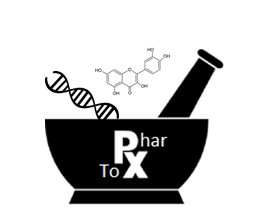Environmental exposures Environmental Cancer Risk, Nutrition and Individual Susceptibility
finalizedThe ECNIS project
Being a Network of Excellence within the EU 6th and 7th Framework Programme, ECNIS has as its overall objective the integration of European environmental carcinogenesis research in order to achieve a reduction in the cancer burden. To reach this objective, ECNIS activities are organised around three axes:
- Integrating Activities, to promote the establishment of a durable network of European research groups committed to co-ordinated research planning, personel mobility and sharing infrastructures and data,
- Joint Research Activities, focussed on high quality, multidisciplinary investigations in the area of molecular cancer epidemiology, environmental carcinogenesis and its modulation by nutrition and genetics, and
- Spreading of Excellence Activities, including researcher training and mobility programmes as well as sharing of new scientific knowledge with different stakeholders (researchers, the general public, regulators, health care specialists, industry, etc.).
ECNIS research focuses mainly on:
- The development and validation of biomarkers of exposure to, early effects of, and susceptibility to carcinogens, and their exploitation for cancer prevention through the conduct of molecular epidemiology studies,
- Understanding the way in which nutrition and genetic disposition modulate the effects of carcinogens and affect individual susceptibility to carcinogenesis,
- The development of hazard and risk assessment strategies, including strategies based on the mechanism of action of carcinogens, and
- The evaluation of ethical issues arising from scientific advances in the use of biomarkers in carcinogenesis research.
Through improved understanding of cancer etiology, ECNIS research aims to facilitate the development of more effective cancer prevention strategies.
Better understanding of cancer etiology - more effective cancer prevention
Because humans are generally exposed to low levels of environmental agents with a carcinogenic potential, the impact of such exposures on individual cancer risk is low and their relative importance is difficult to assess using traditional epidemiological methods. When, in addition, several dietary and hereditary factors operate to increase or decrease the effects of such exposures, population studies with thousands of individuals and long follow-up are required to identify the key carcinogenic or modulating agents. On the other hand, the utilization of biomarkers of exposure, as promoted by ECNIS research, may considerably improve the resolution of conventional approaches by reducing exposure misclassification and decreasing the time between exposure and the appearance of an observable effect.
Further, information derived from the study of genetic variability and bioindicators of associated phenotypic differences that influence susceptibility to cancer, is of paramount importance in the interpretation of epidemiological data and for the protection of susceptible individuals and sub-populations.
Improving the scientific basis for the development of health-promoting foods
The important role of nutrition in modulating cancer risk is established. However, although many claims are made about the cancer-preventive ability of various foods and specific food constituents, in many cases it has been extremely difficult to demonstrate conclusively such beneficial effects. The development of relevant biomarkers that have been validated in humans and that can be used for screening in the assessment of the effects of various foods, or in the development of functional foods (nutraceuticals, therapeutic foods, designer foods), represents a major potential economic and technological gain from ECNIS activities. In this context, ECNIS offers a unique opportunity to provide better basis for dietary advice formulation, functional food development and further chemoprevention trials.
Contribution to policy development - evaluating human carcinogens
In the context of current regulatory frameworks, it is nowadays recognised that the risk assessment of carcinogens should take into account their mode of action, allowing different methods to be used, for example, for genotoxic and non-genotoxic carcinogens. Such a mechanism-based approach to risk assessment requires significant scientific support to ensure that all relevant information is taken into consideration, and this constitutes another aim of ECNIS research.
A specific objective of ECNIS in this context is to provide scientific support to regulators and other relevant stakeholders, at the European and national levels, in connection with the formulation of policies to protect the public from environmental carcinogens, including support in connection with the implementation of the new European regulatory system on chemicals (REACH - "Registration, Evaluation and Authorisation of Chemicals").
Associated Staff
Frederik-Jan van Schooten
Professor, Head of the department
Prof. dr. Frederik-Jan van Schooten Department of Pharmacology and Toxicology, NUTRIM School of Nutrition and Translational Research in Metabolism, more ...
Roger Godschalk
Associate Professor
Dr. Roger Godschalk graduated in Biological Health Sciences in 1995 at the Maastricht University (The Netherlands). He specialised in genetic toxicolo more ...

